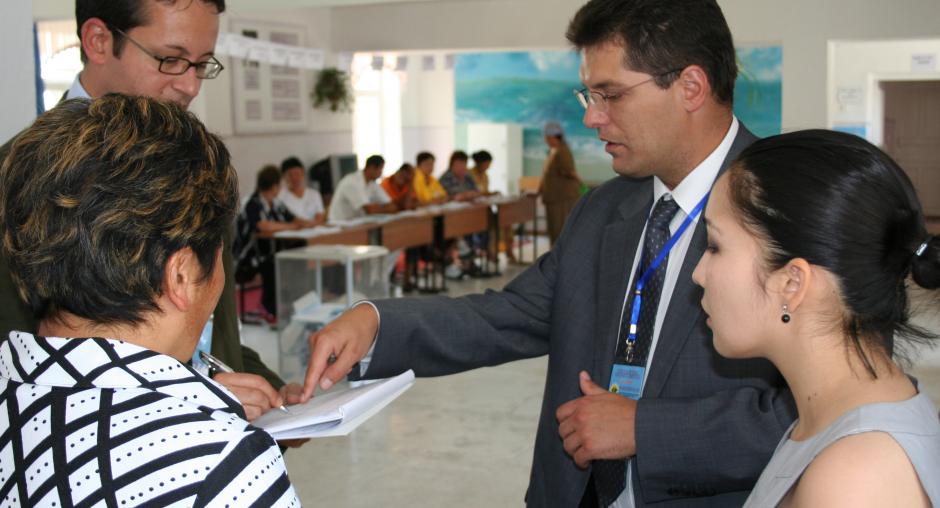Kyrgyz presidential election failed to meet key OSCE commitments, despite some positive elements

BISHKEK, 24 July 2009 - Kyrgyzstan's presidential election failed to meet key OSCE commitments, despite some positive elements, the OSCE election observation mission concluded in a preliminary statement released today.
"We are pleased to see some political pluralism and an active civil society, but this was undermined by an overall uneven playing field in which the distinction between the ruling party and the State was blurred," said Senator Consiglio Di Nino, Special Co-ordinator of the OSCE short-term observers and Head of the delegation of the OSCE Parliamentary Assembly.
"Sadly, this election did not show the progress we were hoping for and it again fell short of key standards Kyrgyzstan has committed to as a participating State of the OSCE. The conduct of election day was a disappointment. We hope that our assessment and recommendations will be used constructively as a basis for a serious overhaul of the way elections are organized in Kyrgyzstan in the future," said Radmila Sekerinska, the Head of the election observation mission of the OSCE Office for Democratic Institutions and Human Rights (ODIHR).
Voters could choose from a number of presidential candidates and civil society played an important role in the election process. But observers also stressed that the incumbent gained an unfair advantage over his opponents through the misuse of administrative resources and bias in the media coverage of the campaign, which did not allow voters to make an informed choice.
The observers noted instances of obstruction of opposition campaign events as well as pressure and intimidation of opposition supporters. The shortcomings observed contributed to an atmosphere of distrust and undermined public confidence in holding genuinely democratic elections.
Election day was marred by many problems and irregularities, including ballot box stuffing, inaccuracies in the voter lists, and multiple voting. The process further deteriorated during the vote count and the tabulation of results, with observers evaluating this part of the process negatively in more than half of observations.
The OSCE election observation mission is a joint undertaking of the OSCE Office for Democratic Institutions and Human Rights and the OSCE Parliamentary Assembly.
For further information contact:
Jens-Hagen Eschenbächer, OSCE/ODIHR, mobile: +996 770 188217 or +48 603 683 122, [email protected]
Andreas Baker, OSCE PA, mobile: +996 770 188210 or +45 60 10 80 30, [email protected]
